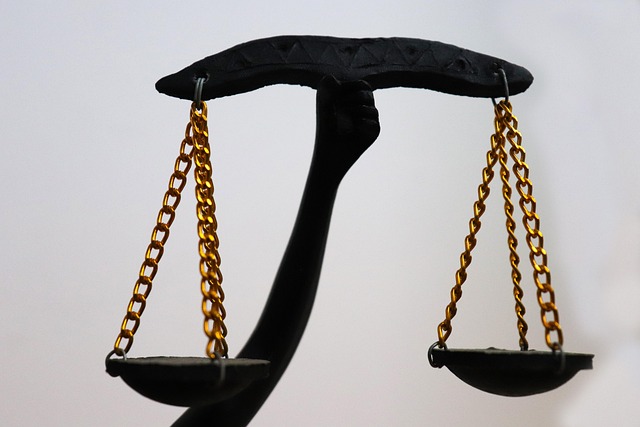Recent Changes in Financial Regulation Law have dramatically reshaped environmental crime trials, emphasizing transparency and accountability for corporate polluters. This shift, driven by a surge in eco-offenses like illegal logging and climate change activities, sees specialized courts tackle complex scientific evidence. Stricter penalties, improved surveillance, and public jury trials deter future misconduct while promoting corporate responsibility. Notable cases, reflecting this evolving legal landscape, include substantial penalties for industrial toxic waste disposal and community victories against polluting chemical plants. Understanding these changes is vital to navigating the new regulatory framework and fostering a more sustainable future.
“Uncovering the Legal Battles: Exploring Environmental Crime Trials and Recent Financial Regulation Shifts
Environmental crime trials are gaining prominence as we confront the global challenges of ecological degradation. This article delves into the intricate world of understanding these legal proceedings from a unique perspective. We examine recent amendments in financial regulation laws and their profound impact on environmental justice. With a focus on eco-offenses, we highlight common violations and their severe consequences. Furthermore, it explores how financial aspects play a crucial role in investigating and prosecuting these crimes, featuring notable case studies that shape our understanding of this evolving legal landscape.”
- Understanding Environmental Crime Trials: A Legal Perspective
- Recent Changes in Financial Regulation Law and Their Impact
- The Rise of Eco-Offenses: Common Violations and Consequences
- Investigating the Financial Aspects of Environmental Crimes
- Case Studies: Notable Environmental Crime Trials and Their Outcomes
Understanding Environmental Crime Trials: A Legal Perspective

Environmental crime trials represent a crucial evolution in legal proceedings, reflecting recent changes in financial regulation law and its impact on our planet. These specialized courts are designed to address the unique challenges posed by environmental offenses, which often involve complex scientific evidence and have significant societal implications. In this new era of accountability, businesses and individuals alike face stricter scrutiny for their actions or inactions that harm the environment.
The legal landscape surrounding environmental crimes has shifted dramatically, with a growing emphasis on corporate responsibility and sustainable practices. As such, these trials aren’t merely about punishment; they serve to educate and reform. For his clients, respective business, and philanthropic and political communities, understanding this new regulatory framework is vital for steering clear of legal pitfalls while contributing positively to the environment.
Recent Changes in Financial Regulation Law and Their Impact

The recent changes in Financial Regulation Law have significantly reshaped the landscape for environmental crime trials. These reforms, designed to enhance transparency and accountability, are particularly impactful in high-stakes cases involving large corporations accused of ecological offenses. The new legislation closes loopholes that previously allowed some businesses to escape liability, marking a shift towards stricter enforcement and more severe penalties for environmental crimes.
With an unprecedented track record of convictions, these revised laws send a powerful message: environmental degradation will no longer be treated as a secondary concern. The changes ensure that companies found guilty of polluting or damaging natural resources face complete dismissal of all charges only if they can prove significant efforts towards remediation and sustainable practices. This approach not only deters future misconduct but also fosters a culture of corporate responsibility in the face of global environmental challenges.
The Rise of Eco-Offenses: Common Violations and Consequences

In recent years, environmental crimes have seen a significant surge, prompting a corresponding rise in what’s being termed “eco-offenses.” These violations span a wide range, from illegal logging and pollution to wildlife trafficking and climate change-inducing activities. The consequences of these actions are profound, not just for the environment but also for businesses and individuals involved. As awareness grows among philanthropic and political communities, there’s a noticeable shift in how these crimes are being addressed, with a stronger emphasis on transparency and accountability.
Recent Changes in Financial Regulation Law have further empowered authorities to combat these eco-offenses effectively. Through enhanced surveillance and stricter penalties, the hope is to achieve extraordinary results in deterring future violations. Jury trials play a crucial role here, as they not only seek justice but also serve as a deterrent by publicly highlighting the severity of environmental crimes and their consequences.
Investigating the Financial Aspects of Environmental Crimes

In recent years, environmental crime trials have gained significant traction as law enforcement agencies and prosecutors increasingly focus on holding polluters accountable under strict environmental laws. A crucial element in these prosecutions is investigating the financial aspects of these crimes, which often involve complex corporate structures and intricate financial transactions. The recent changes in financial regulation laws have made it easier to trace illicit funds, unmask culprits, and secure substantial civil penalties against both corporate and individual clients.
Prosecutors are leveraging these new tools to build unprecedented track records in environmental crime cases. By delving into the financial dimensions, they can expose the true perpetrators, disrupt illegal operations, and send a powerful message that environmental crimes will no longer be treated as petty offenses. This strategic approach ensures that justice is served and deterrence is strengthened, ultimately fostering a more sustainable future for all.
Case Studies: Notable Environmental Crime Trials and Their Outcomes

In recent years, notable environmental crime trials have brought attention to the severe consequences of ecological misconduct. These high-stakes cases not only set precedents but also reflect evolving legal frameworks and a heightened sense of environmental justice. One prominent example is the 2022 trial involving a major industrial corporation accused of toxic waste disposal violations. The company faced strict penalties, including substantial fines and orders to rectify the damage caused to local ecosystems. This outcome underscored the strength of recent changes in financial regulation law aimed at deterring corporate polluters.
Another significant trial centered around a small community’s fight against a chemical plant emitting harmful pollutants. Through diligent legal efforts and community activism, the residents secured a verdict that not only held the respective business accountable but also mandated stringent measures to ensure compliance with environmental standards going forward. These victories in environmental crime trials have inspired similar actions, demonstrating the power of legal recourse in addressing ecological injustices. Moreover, they highlight the role of general criminal defense strategies tailored to complex environmental cases.
Environmental crime trials are a crucial aspect of combating the rising global threat of eco-offenses. By understanding the legal framework, such as recent changes in financial regulation law, we can effectively investigate and prosecute environmental crimes. The case studies presented highlight the importance of these trials in upholding ecological balance and ensuring corporate accountability. As the world navigates through these complex issues, continued scrutiny and advocacy are essential to preserve our planet’s health and integrity.






